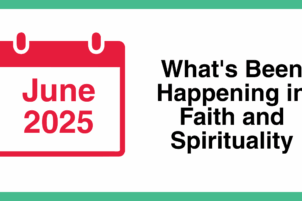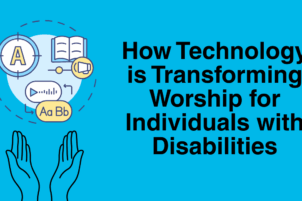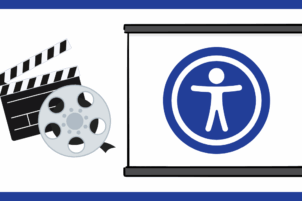 RespectAbility’s message testing shows us that, in general, people prefer a message that says that we are a stronger community when we are welcoming, diverse, and respect one another, and that everyone should have an equal opportunity to fully participate in our community. 87 percent of respondents in our 2021 survey of the Jewish community felt that this message was highly persuasive, while only 27 percent felt that a message that promoted inclusion because it was commanded by the Jewish tradition was most powerful.
RespectAbility’s message testing shows us that, in general, people prefer a message that says that we are a stronger community when we are welcoming, diverse, and respect one another, and that everyone should have an equal opportunity to fully participate in our community. 87 percent of respondents in our 2021 survey of the Jewish community felt that this message was highly persuasive, while only 27 percent felt that a message that promoted inclusion because it was commanded by the Jewish tradition was most powerful.
However, one of the great things about Jewish law is that, with the possible exception of the Holiness code, our laws make sense. After almost 25 years of learning the Jewish teachings on disability, I can safely say that the Rabbinic approach is premised on the notion that everyone should have an equal opportunity to participate. Therefore, these are not actually 2 separate messages, but the same message.
For me, this highlights one of the challenges that I’ve noted throughout my decades of Jewish inclusion work. Because people don’t always know what Judaism has to say about disability, many think that disability inclusion is a topic separate from, if not foreign to, a Jewish worldview. In fact, nothing could be further from the truth.
RespectAbility has certainly highlighted this notion before in our materials on faith inclusion, and even discussed it in webinars, such as this wonderful dialogue between Aaron Kaufman of the Jewish Federations of North America and Rabbi Lauren Tuchman. Now, it is my great pleasure to be able to add the teachings that I have spent a professional lifetime gathering to RespectAbility’s library of content.
The four study guides released here represent the cumulative teaching of my 25 years of scholarship on this topic, produced with the assistance of my team at RespectAbility, our Apprentices Nicole Olarsch and Becca Block, and the amazing Howard Blas. Within these resources, one can explore the depth of our tradition’s treatment of disability.
Though you can read them in any order, my suggestion is that the guide entitled Created in the Image of God: A Jewish Exploration of People with Disabilities will give you a good overview of the Jewish approach to disability, while Finding A Model of Inclusion in The Talmud will provide a technical framework to show how the Rabbis valued the talents of people with disabilities. The Rabbis also spent significant time talking about the topics of deafness and those who learn differently, and reviewing those two guides not only gives food for thought to those looking to live a halachic lifestyle, but also a really good insight into our tradition’s modernity. Without spoiling too much, The Talmudic Approach to Accommodating Different Learning Styles introduces the concept of an IEP roughly 1,500 years ago, and A Text Study on Deafness, while limited by the understanding of deafness in Rabbinic times, is forward thinking in its philosophy. It’s always nice to see that inclusion, while an enduring concept, is by no means a new one.
These documents are all available in Microsoft Word format, in the hopes that you will use them in whatever way they are most useful to your teaching and learning. While you can watch this dialogue between me and Rabbi David Kasher of IKAR to see my take on teaching some of these sources, I would like to take this moment to remind you that the real richness of sharing the Jewish tradition is for you to wrestle with the sources on your own. I hope that they spark many conversations and continue to advance the way we think about Jewish disability inclusion.







